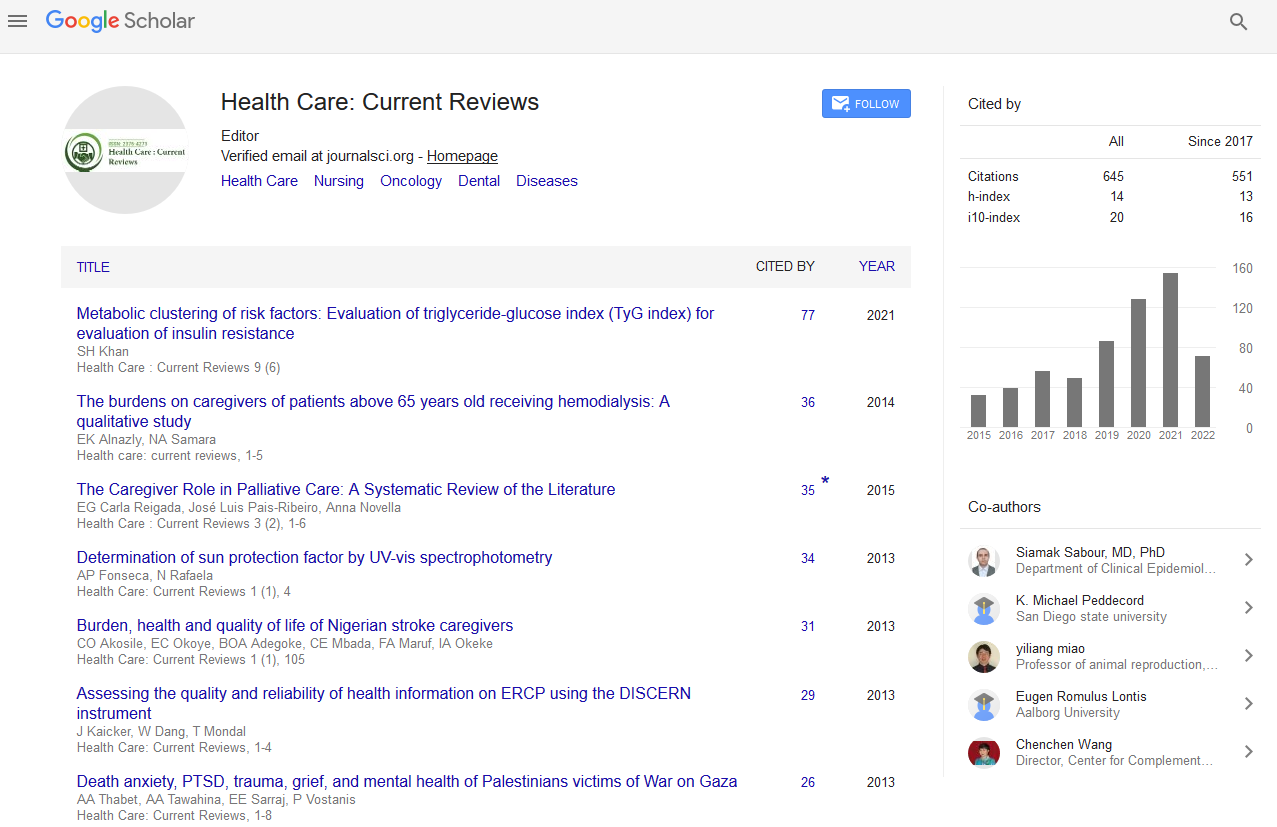PMC/PubMed Indexed Articles
Indexed In
- Open J Gate
- Academic Keys
- RefSeek
- Hamdard University
- EBSCO A-Z
- Publons
- Geneva Foundation for Medical Education and Research
- Google Scholar
Useful Links
Share This Page
Journal Flyer

Open Access Journals
- Agri and Aquaculture
- Biochemistry
- Bioinformatics & Systems Biology
- Business & Management
- Chemistry
- Clinical Sciences
- Engineering
- Food & Nutrition
- General Science
- Genetics & Molecular Biology
- Immunology & Microbiology
- Medical Sciences
- Neuroscience & Psychology
- Nursing & Health Care
- Pharmaceutical Sciences
The Effectiveness of Cardio-Pulmonary Resuscitation Using High Fidelity Mannequin and Standard Method Among the Selected Students in Faculty of Applied Medical Sciences,University of Tabuk, Saudi Arabia
4th Global Summit on Healthcare
November 09-10, 2015 Dubai, UAE
Jay Nantin Ablao, Faisel Abuduhier, Mathar Mohideen
University of Tabuk, Saudi Arabia
Posters-Accepted Abstracts: Health Care: Current Reviews
Abstract:
It is a well-known fact that sudden cardiac arrest is the leading cause of death in the world and most of them die before reaching to the hospital or in the emergency room. During such situations where time plays a crucial role in the recovery, nurses are expected to be efficient and effective in management of patients with life saving measures. The use of high-fidelity manikins to simulate real case scenarios helps the nursing students to increase their confidence in providing patient care. This study is aimed to evaluate the effectiveness of high fidelity simulation on the students learning of Cardio Pulmonary Resuscitation. The quasi-experimental (pre-test post-test) design was chosen for this research. The knowledge instrument composed of 20 items (multiple choices) and the skills were observed by the 10 items (checklist) using 4-point likert scale. An experimental group attended lecture and practice training with Sim man 3G mannequin whereas the control group attended lecture and the practice training with the standard mannequin.. In statistical analysis, the researcher utilized the SPSS v21, independent T-test was used to identify differences between groups (experimental vs control) and also linear regression analysis to identify correlations between variables .Marked increase in scores rated to good among both groups in the post test (Mean11.93). However, statistically there is no significant difference noted between the experimental group and control group on the level of knowledge with a mean difference of 1.69, t-test value of .824, .420 in 2 tailed probability. The results of level of psychomotor skills scores were good in immediate and delayed test for the experimental group (Mean 3.80).Significant differences were noted between the experimental and control group on the level of skills on the immediate posttest with a t-test value of 6.95 (0.00 in 2 tailed probability) as well as on the delayed posttest with a t-test value of 13.19 (0.00 in 2 tailed probability). The students who were trained with high fidelity mannequin performed better than the standard mannequin. There is significant relationship between the psychomotor skills immediate and delayed when tested using the bivariate analysis with .036 results. This study emphasize on the incorporation of high fidelity simulation along with the traditional lectures in the nursing program will benefit the enhancing the knowledge and skills.
Biography :
Jay has completed his PhD last October 2010 and currently the Supervisor of the Department of Nursing Faculty of Applied Medical Sciences, University of Tabuk. He is actively involved in the faculty to improve the curriculum and instruction to uplift the nursing education of the Saudi students. He is also the current chairman of the Department Research Committee and Strategic planning committee.
Email: jablao@ut.edu.sa


